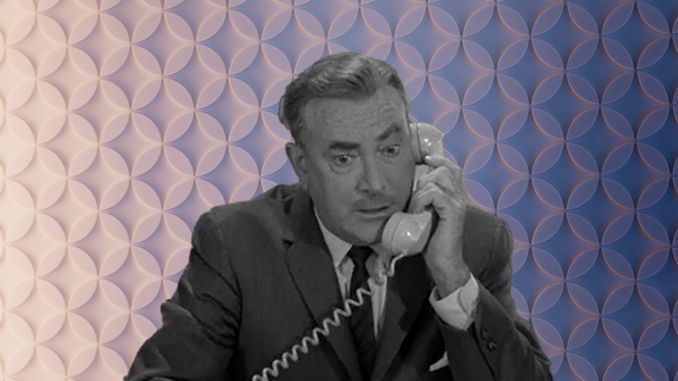
“Drysdale became a buffoon, then a real heel,” said Raymond Bailey.
The Beverly Hillbillies didn’t feature a ton of meaningful character arcs. It wasn’t designed to. The characters work because of how clearly defined they are. Situations are funny because we know that these people don’t fit into most of their situations. That wouldn’t work as well if the characters grew and changed like real people. So, The Beverly Hillbillies doesn’t feature a lot of serialized storytelling. Its episodic nature keeps things the same episode to episode, and year to year.
While its characters may not have grown, the show did. The most notable change was the Wizard of Oz-like leap from black-and-white to full color. However, another subtler change was the increased role Raymond Bailey had on the show. Throughout the series, his character, Mr. Drysdale, was featured more heavily, with more screen time and more involvement in stories. It’s not hard to tell why, either. Raymond Bailey gives such a memorable performance as Drysdale that you can’t help but clamor for more. And even though the character and his motivations don’t change, Bailey’s portrayal developed slowly.

“From a straight businessman, Drysdale became a buffoon, then a real heel,” said Bailey of his performance. “I’m a hambone, so I’m playing him to the hilt.”
As the show’s producer, Paul Henning wasn’t just responsible for The Beverly Hillbillies’ existence. He was also the one in charge of decisions like making Drysdale a more prominent part of the show. According to an article in The North Adams Transcript, Henning began privately referring to Drysdale and his secretary Jane Hathaway as the “fifth and sixth Hillbillies.”
Luckily for Henning, Raymond Bailey stuck around show business long enough to contribute a great performance. He was no quitter, but Bailey faced a host of setbacks that could have kept him from pursuing an acting career. “I spent a life of frustration,” said Bailey of his early acting work.
“My frustration gave me only one goal — to save enough money to get out of wherever I happened to be. My problem was a lack of education— I quit school in the 10th grade, and left home when I was 15. I’ve worked for 30 cents a night doing voices for puppet shows and I’ve known an empty stomach and tears.”
MaybeMr. Drysdale deserved that fortune after all!